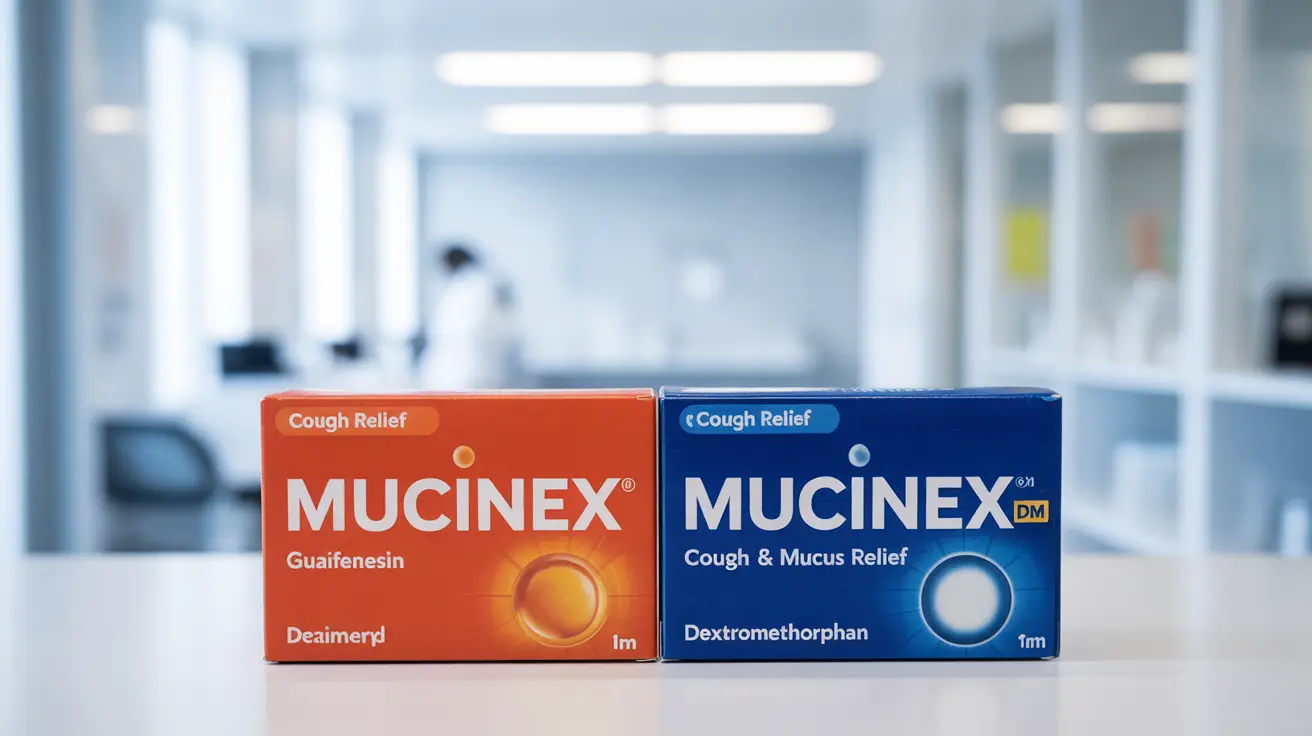When dealing with a persistent cough or chest congestion, choosing the right medication can make a significant difference in symptom relief. Two popular options, Mucinex and Mucinex DM, while similar in name, serve distinct purposes in treating respiratory symptoms. Understanding these differences is crucial for selecting the most effective treatment for your specific condition.
Understanding the Basic Components
Mucinex contains guaifenesin as its active ingredient, which works as an expectorant to help break up and thin mucus in your airways. Mucinex DM contains this same expectorant plus an additional ingredient: dextromethorphan (DM), which acts as a cough suppressant. This key difference makes each medication suitable for different types of respiratory issues.
When to Use Regular Mucinex
Regular Mucinex is most appropriate when dealing with:
- Productive coughs with excess mucus
- Chest congestion
- Bronchial secretions that need to be cleared
- Upper respiratory infections with heavy mucus production
The guaifenesin in regular Mucinex helps make your cough more productive by thinning the mucus, making it easier to clear from your airways. This can provide relief from chest congestion while allowing your body to naturally remove excess mucus.
When to Choose Mucinex DM
Mucinex DM is better suited for situations involving:
- Dry, nagging coughs
- Unproductive coughs that interfere with daily activities or sleep
- Combined symptoms of congestion and persistent coughing
- Upper respiratory infections with both mucus and cough symptoms
The addition of dextromethorphan helps suppress the cough reflex while the guaifenesin continues to work on thinning mucus. This dual-action approach can provide more comprehensive relief when both symptoms are present.
Important Safety Considerations
Before using either medication, consider these safety points:
- Both medications should not be taken with certain other cough medicines
- People with certain medical conditions should consult their healthcare provider first
- Neither medication should be used for extended periods without medical supervision
- Proper dosing and timing are essential for effective relief
Side Effects and Precautions
Common side effects of both medications may include:
- Mild nausea or stomach upset
- Dizziness
- Mild headache
- Drowsiness (especially with Mucinex DM)
Mucinex DM users should be particularly careful when driving or operating machinery due to the potential drowsiness caused by dextromethorphan. Additionally, certain individuals should avoid or use caution with these medications, including those with liver problems, chronic cough, or those taking certain antidepressants.
Frequently Asked Questions
What is the difference between Mucinex and Mucinex DM in treating chest congestion and cough?
Mucinex contains only guaifenesin for mucus relief, while Mucinex DM adds dextromethorphan to suppress coughing. This makes Mucinex DM more effective for treating both wet and dry coughs, while regular Mucinex focuses solely on mucus relief.
When should I choose Mucinex versus Mucinex DM for my cough symptoms?
Choose regular Mucinex for productive coughs with excess mucus that needs to be cleared. Opt for Mucinex DM when you have both mucus and a persistent cough that needs suppression, especially if the cough is disrupting your sleep or daily activities.
How do guaifenesin and dextromethorphan work in Mucinex DM to relieve cough and mucus?
Guaifenesin works by thinning and loosening mucus in your airways, making it easier to cough up. Dextromethorphan works on the brain's cough center to suppress the urge to cough, providing dual-action relief.
What are the common side effects and precautions for taking Mucinex and Mucinex DM?
Common side effects include mild nausea, dizziness, and headache. Mucinex DM may cause additional drowsiness. Both medications require careful attention to dosing and should not be combined with certain other medications.
Can Mucinex DM help with a dry cough caused by a cold or bronchitis better than Mucinex alone?
Yes, Mucinex DM is generally more effective for dry coughs due to its cough-suppressing ingredient, dextromethorphan. Regular Mucinex alone may not provide sufficient relief for dry, non-productive coughs.




